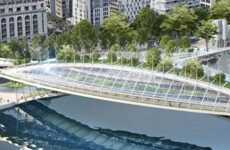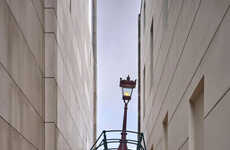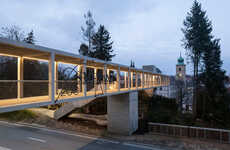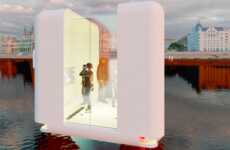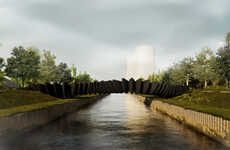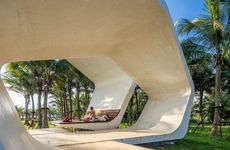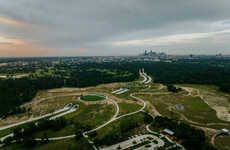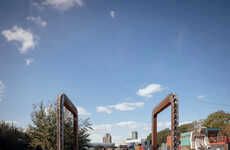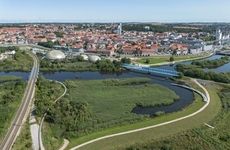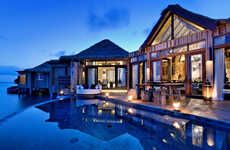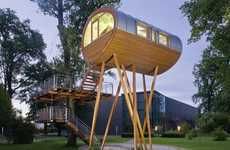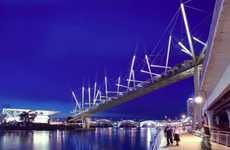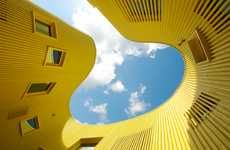
The Fort de Roovere Trench Lets You Walk Without Getting Wet
Jana Pijak — November 19, 2011 — Art & Design
References: modernarchitectureconcept & mydesignstories.net
The Fort de Roovere trench is a sunken water crossing designed by Ro & Ad Architects. The trench is inset into a canal and acts as a bridge, connecting the two opposing sides of the fort together.
Instead of building a bridge, Ro & Ad architects opted for a more visually appealing option. They did not want anything blocking the monument but instead managed to create a seemingly invisible crossing. While the trench acts as a crossing for visitors, it does not jeopardize the historical nature of the fortress. The canal crossing is partially submerged, giving one the feeling of walking in and atop the surrounding water. The Fort de Roovere trench is an aesthetically beautiful structure with a sleek and functional design that adds to a modern touch to a beloved historical monument.
Image Credit: Ro & Ad Architects
Instead of building a bridge, Ro & Ad architects opted for a more visually appealing option. They did not want anything blocking the monument but instead managed to create a seemingly invisible crossing. While the trench acts as a crossing for visitors, it does not jeopardize the historical nature of the fortress. The canal crossing is partially submerged, giving one the feeling of walking in and atop the surrounding water. The Fort de Roovere trench is an aesthetically beautiful structure with a sleek and functional design that adds to a modern touch to a beloved historical monument.
Image Credit: Ro & Ad Architects
Trend Themes
1. Sunken Water Crossings - Opportunities to design visually appealing crossings immersed in water.
2. Invisible Bridges - Designing bridges that appear invisible in order to preserve historical landmarks.
3. Functional Aesthetics in Architecture - Integrating modern design elements into historical monuments while maintaining their functionality.
Industry Implications
1. Architecture - Opportunities to innovate aesthetically pleasing and functional architecture designs.
2. Tourism - Innovating attractive site designs to preserve historical landmarks for tourism purposes.
3. Civil Engineering - Opportunities to innovate constructions and designs of water crossings.
3.7
Score
Popularity
Activity
Freshness


